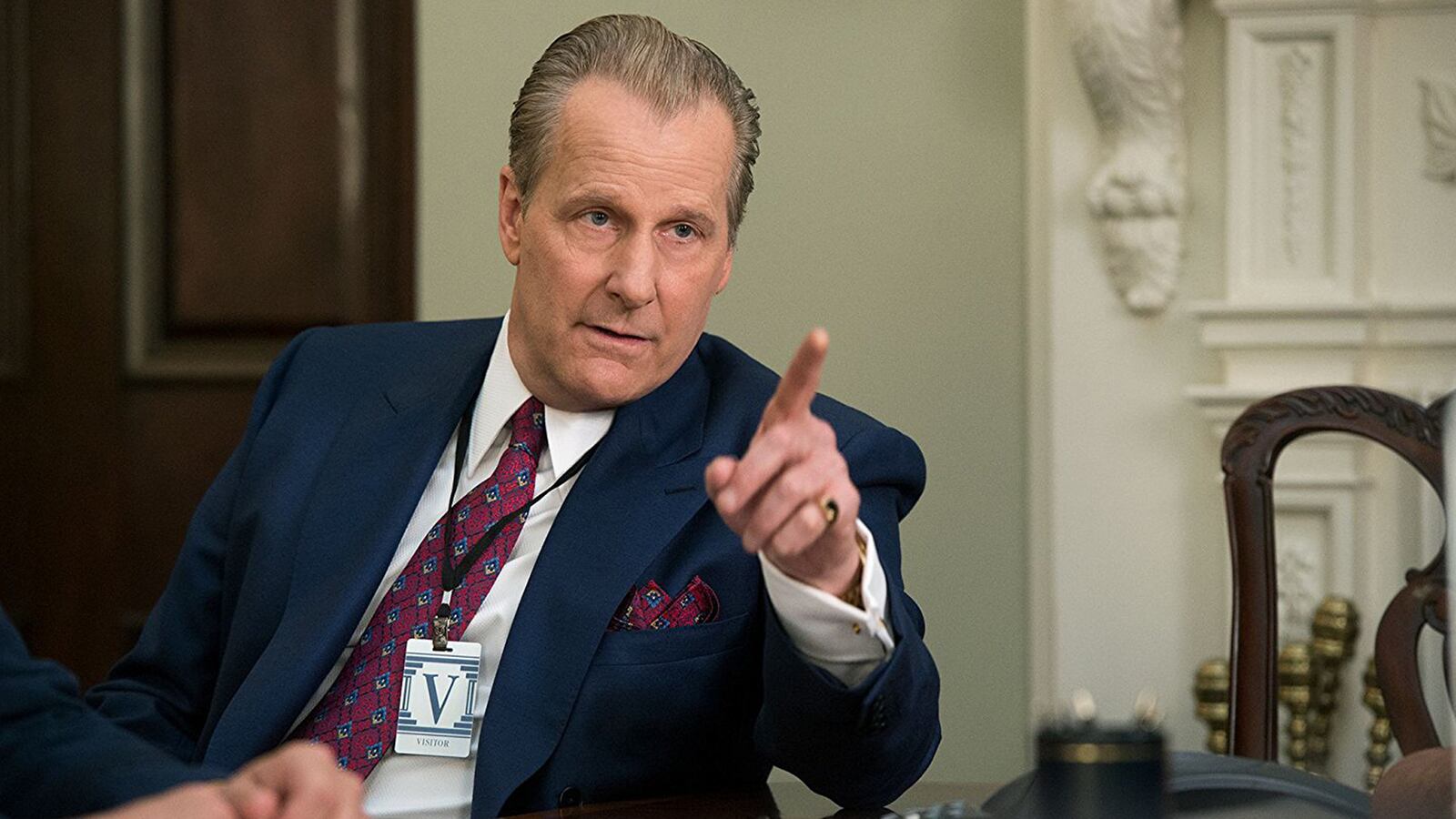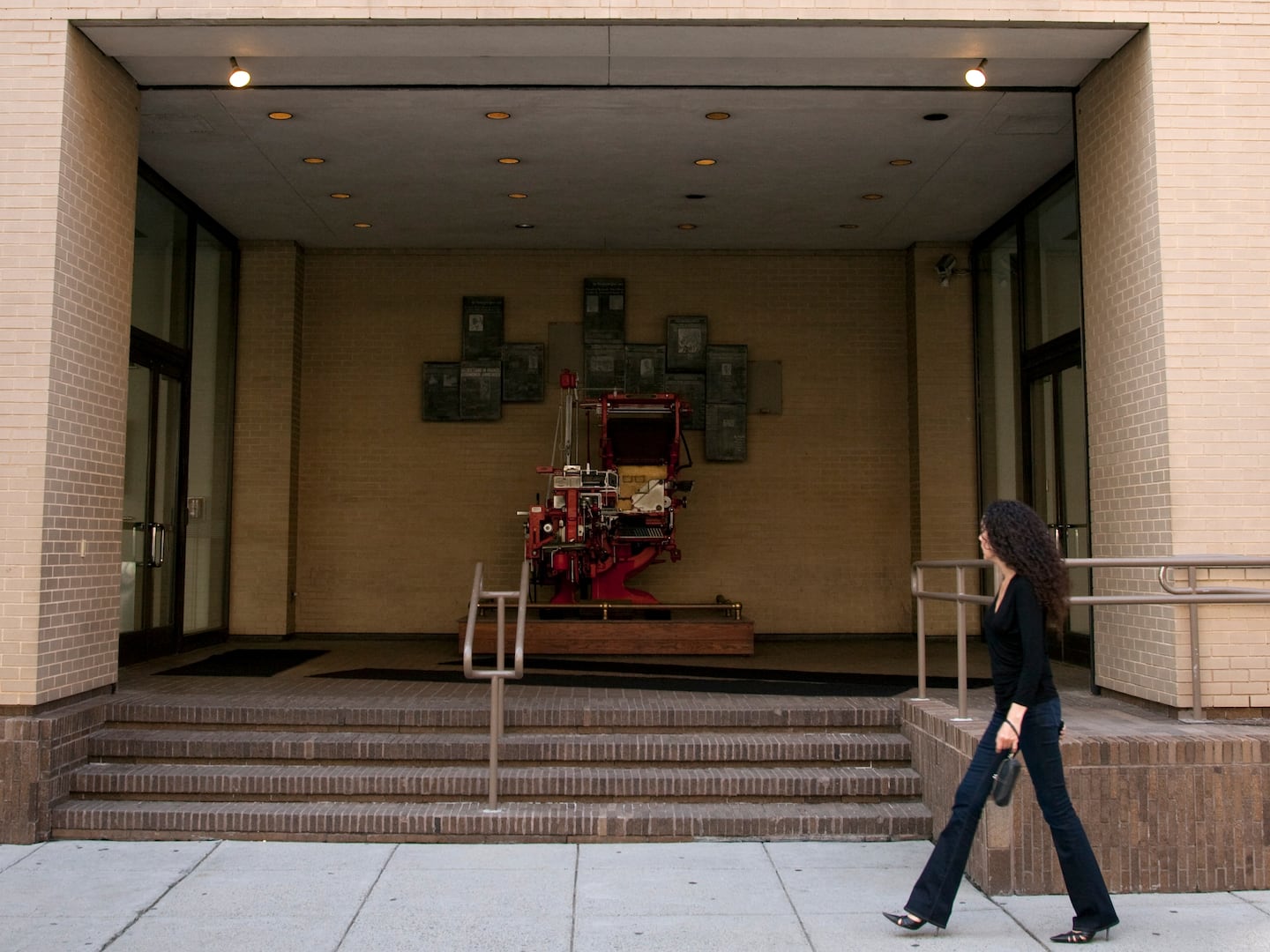If you’re going to tell a story—especially one that’s true, and has been repeatedly dissected over the past two decades—then you’d better have a point. The Looming Tower, adapted from Lawrence Wright’s 2006 Pulitzer-winning book by Wright, Alex Gibney, and Dan Futterman, only comes halfway. As a work about a specific moment in history, it may prove illuminating for those too young to remember much of what happened leading up to and following the September 11 attacks, but as a story with something to say, it falters. Luckily, the caliber of the people involved keeps it from falling.
As strange as it might sound, the series is better if taken as fiction. Like Hulu’s other big series, The Handmaid’s Tale, The Looming Tower is very thematically of-the-moment, as it sets up a question that’s been more and more prevalent in the public consciousness: How much, if at all, can we rely upon our government? Given the way it’s tied to Wright’s book—or at least part of it, given the focus on the Americans rather than the Middle East, in a complete reverse from the balance of the text—there’s only so much that can be used as an answer (history generally isn’t so black and white). So there’s some new material added in to spice things up, from composite characters to clunky romances, most of which only serves to make the story feel fantastical rather than real.
It’s jarring, too, when the series intercuts the drama with real news footage. The video from the aftermath of the attack on the U.S. Embassy in Nairobi is horrifying. How best to reconcile those very real images of suffering with the melodrama of the rest of the series? It feels cheap, after that, to spend so much time turning FBI counterterrorism expert John O’Neill (Jeff Daniels) into a Don Draper-like figure, and to have the series’ “villain,” CIA analyst Martin Schmidt (a composite character portrayed by Peter Sarsgaard), claim that he doesn’t care about collateral damage so long as the victims aren’t American—right before a young boy watches his friends get torn apart by an airstrike.
From the get-go, the series sets up the posturing and self-serving attitudes that so handicapped American government agencies, thus allowing a tragedy that could have been prevented to instead become one of the defining moments of the 21st century. That point, along with one character’s hopes that personal scandal will motivate politicians into taking action in order to distract from it, are more than pertinent to politics today, and raise a point about the ways in which history seems to repeat itself, particularly with regard to American history.
As such, O’Neill—Daniels’s O’Neill, not the real man—feels like the wrong character to be carrying the series. He’s a character who’s past his expiration date, as yet another white man who cusses his way through meetings, sleeps around, and coasts through it all on charisma and cleverness. He’s a male fantasy. Ali Soufan (Tahar Rahim) is much more interesting.
Soufan, who encounters pushback at every turn because he isn’t white—and because he was born in Lebanon—is the perfect hero for the more complicated points that the show is trying to make and the climate that it’s attempting to speak to, and the series’ primary counterpoint to turning every Middle Eastern character into a prop or a stereotype.
That isn’t to say that a balance is always struck, which is the series’ primary weakness. The balance between fact and fiction, between representation and stereotyping—there’s a constant seesawing that serves some facets of the show well and fails in other respects. The saving grace of the show is its incredible cast, but there are hardly any women to speak of in the entire deck of cards, and those who do appear are always romantic interests rather than independent entities. (Jamie Neumann, so terrific in The Deuce, is the sole exception, though she’s largely wasted in her role.) Even some of the male cast fare poorly: Daniels, as previously mentioned, is playing a type of character we’ve already seen and grown tired of (though he does it well), and even Sarsgaard, who has proven just as compelling playing a villain as he is playing a hero, is hemmed in by a script that doesn’t make Schmidt out to be much more than a creep.
But when The Looming Tower does reach equilibrium, it’s a gorgeous piece of work. As Robert Chesney, Bill Camp is easily the most compelling part of the series. Everyone in the cast is enough of a pro to elevate the clunky dialogue (or at least do something interesting with it), but Camp’s performance is so splendid that it’s like suddenly being able to see the “ideal” version of the show. He’s given one of the series’ best sequences—an extended interrogation—and the way that he plays it is reminiscent of the best films that have dealt with the war on terror and its effects (Zero Dark Thirty, Syriana, etc.) instead of the more cut-and-dry formula that The Looming Tower is working from, here.
All that aside, perhaps the most fascinating thing about The Looming Tower is that it firmly places 9/11 and its surrounding events in historical context—the kind of history that can be looked back on, i.e. history that can repeat itself. Unfortunately, there’s a balance there, too. Every historical figure is cast or made a composite—except bin Laden. As with the footage from the attacks, it’s a sudden reminder of the gap between truth and fiction. The point of the series is to shed some light on the internal battles that some would say allowed 9/11 to happen, so perhaps it’s fitting that the series should be fighting its own battles in that respect, too. But, as we see as the show progresses, that only leads to chaos.






